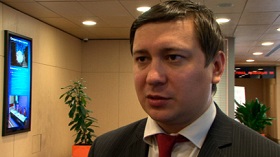A few days ago, the world was witnessing history in the making, as the P5+1 and Iran managed to reach an historical agreement on the Iranian nuclear programme. And while world leaders are now expressing their concerns about the document’s shortcomings, albeit in a restrained way, the political will and efforts of the parties, not to mention the result of these many years of negotiations, should not be underestimated. Anton Khlopkov, Director of the Center for Energy and Security Studies, offers his opinion on the matter.
A few days ago, the world was witnessing history in the making, as the P5+1 and Iran managed to reach an historical agreement on the Iranian nuclear programme. And while world leaders are now expressing their concerns about the document’s shortcomings, albeit in a restrained way, the political will and efforts of the parties, not to mention the result of these many years of negotiations, should not be underestimated. Anton Khlopkov, Director of the Center for Energy and Security Studies, offers his opinion on the matter.
What role does the historic agreement on the Iranian nuclear programme play?
It’s not an agreement in the traditional sense of the word — it is more of an action plan. The sides will not sign an agreement, they will simply agree to its terms. The publication of the document is an indication that the ultramarathon has been completed successfully. The negotiations were difficult and drawn out. In many ways, the agreement came to be thanks to the efforts of Russia, which played a critical role in the process in 2012—2013, when neither the Iranian nor the Russian side showed any real commitment to continuing the dialogue in the P5+1 format. It was thanks to the efforts of Russian diplomats that negotiations continued up until the Iranian presidential elections, which saw the arrival of Hassan Rouhani to power. The ensuing dialogue was far more constructive. If the negotiations had frozen at that time, when the Russian leadership succeeded in setting up meetings in Baghdad, Moscow, Istanbul and Almaty (twice), then it would have been very difficult to start the process anew. At the present stage, the key negotiators were the United States and Iran, as the crisis surrounding Iran’s nuclear programme in many a consequence of the even deeper crisis in U.S.–Iranian relations that dates back to the Islamic Revolution of 1979.
It is important to note that the Vienna agreement demonstrates the effectiveness of the political and diplomatic tools used to regulate international crises, including those that relate to the non-proliferation of nuclear weapons. In recent years the United States has on a number of occasions either used, or threatened to use military force to resolve crises. This current agreement, in which Russia played a key role, once again shows that political and diplomatic instruments work, and that the most effective way of resolving crises is through international cooperation. Attempts to resolve individual crises unilaterally have proved to be unsustainable (with the terms eventually being broken by one or more of the sides).
I hope that the Vienna agreements will also act as a catalyst for redoubling efforts to resolve the nuclear crisis on the Korean Peninsula. In recent years, the United States has avoided active and systemic participation in international efforts to reduce tensions in the region, and has even brushed initiatives emanating from Pyongyang aside. Progress on the Iranian issue should stimulate the participants in the P5+1 negotiations on denuclearizing the Korean Peninsula to think seriously about the need to resume the dialogue as soon as possible.
Will the agreement be revised?
It’s no secret that Tehran and Washington are able to devote serious resources to ensuring the terms of the agreement are followed through. This is why the period starting in late 2017 — that is, about a year after the next U.S. presidential elections — will be absolutely crucial. Key officials will be appointed to major governmental positions, and this could affect the U.S. government’s position on the agreement, especially if the new president happens to be a Republican.
A new interpretation of the agreement is not beyond the realms of possibility. We shouldn’t forget that it contains commitments that must be honoured by all the countries involved in the negotiations. For example, the United States and the European countries have committed, among other things, to lift the sanctions that have been in place against Iran for years, if and when Tehran carries out the provisions of the agreement.
Interviewed by Maria Gurova, RIAC web editor




